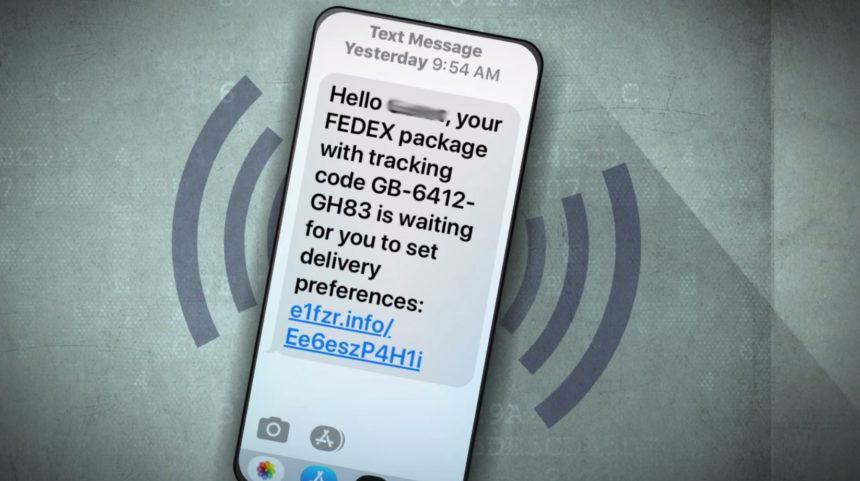Better Ask Barry: What is “smishing?”

(KION) By now, most of us are wise to telephone scams. If you don’t know the number, you don’t answer.
As a result, scammers are targeting your text (or SMS) messages. Like online "pfishing," it's been dubbed "smishing."
The latest scam involves text messages, claiming to be from FedEx, asking you to follow a link to confirm your delivery information.
Gail Mann got the text and had her doubts.
“I don’t have any packages coming,” she laughed. “No packages.”
The link often directs you to a bogus Amazon customer satisfaction survey. It offers a free gift if you provide your credit card info to cover shipping.
Opening the attachment puts your banking and other personal information at risk. It also opens to the door to dangerous malware that tracks your phone activity and sends it to crooks.
“As you enter credit card information to another website – months down the road – you’re still sending scammers all this information. It’s a goldmine,” said Matt Oliver, from the NC Consumer Council.
FedEx issued this statement: “We do not send unsolicited texts or emails requesting money, package or personal information. Suspicious messages should be deleted without being opened and reported to abuse@fedex.com.”
Another person who got the fake message is Josh York, who is blind and uses voice programs to hear his texts.
He checked the tracking number online and found it didn’t exist. Then he called FedEx directly, to be sure.
“Does the tracking number they gave you start with GB?” said York. “I said yes it does, and they said that’s a scam.”
Experts say you can fight back by blocking the number, reporting it to the FTC, and texting 7726 (SPAM) from your phone, so phone companies can investigate the text.
“If they determine it’s spam or a scam, they’ll shut that link down,” said Oliver.
Remember, companies like FedEx, UPS and DHL don’t text about missed deliveries. They leave a written notice in your mailbox or at your door.


